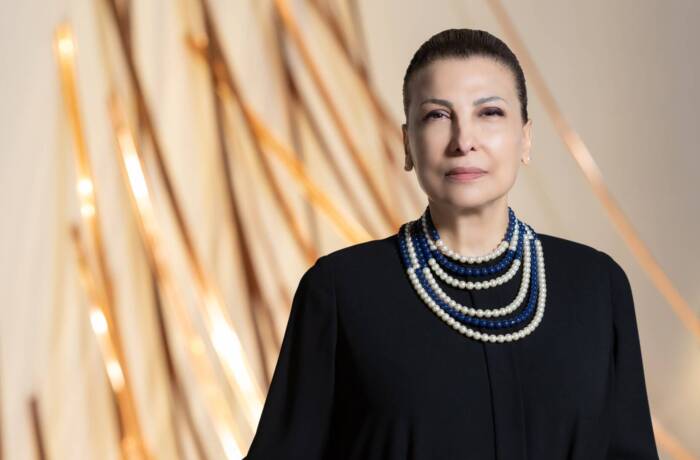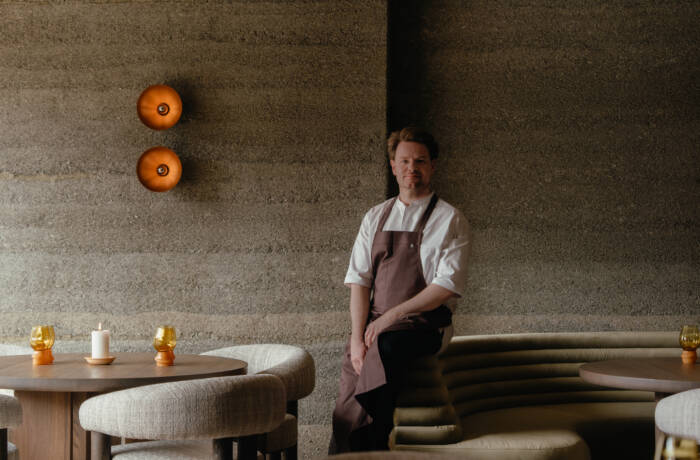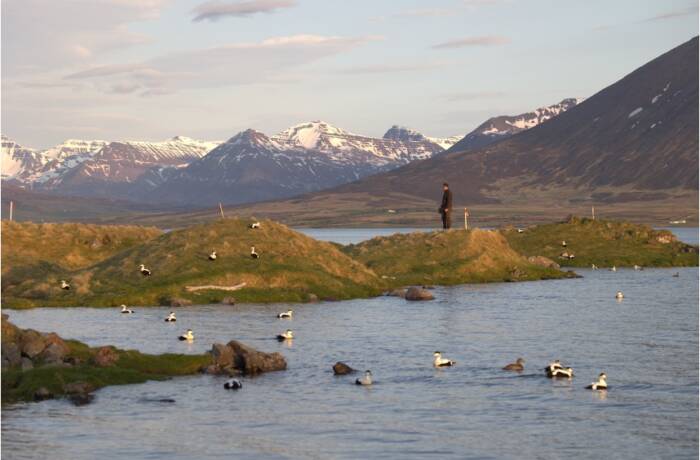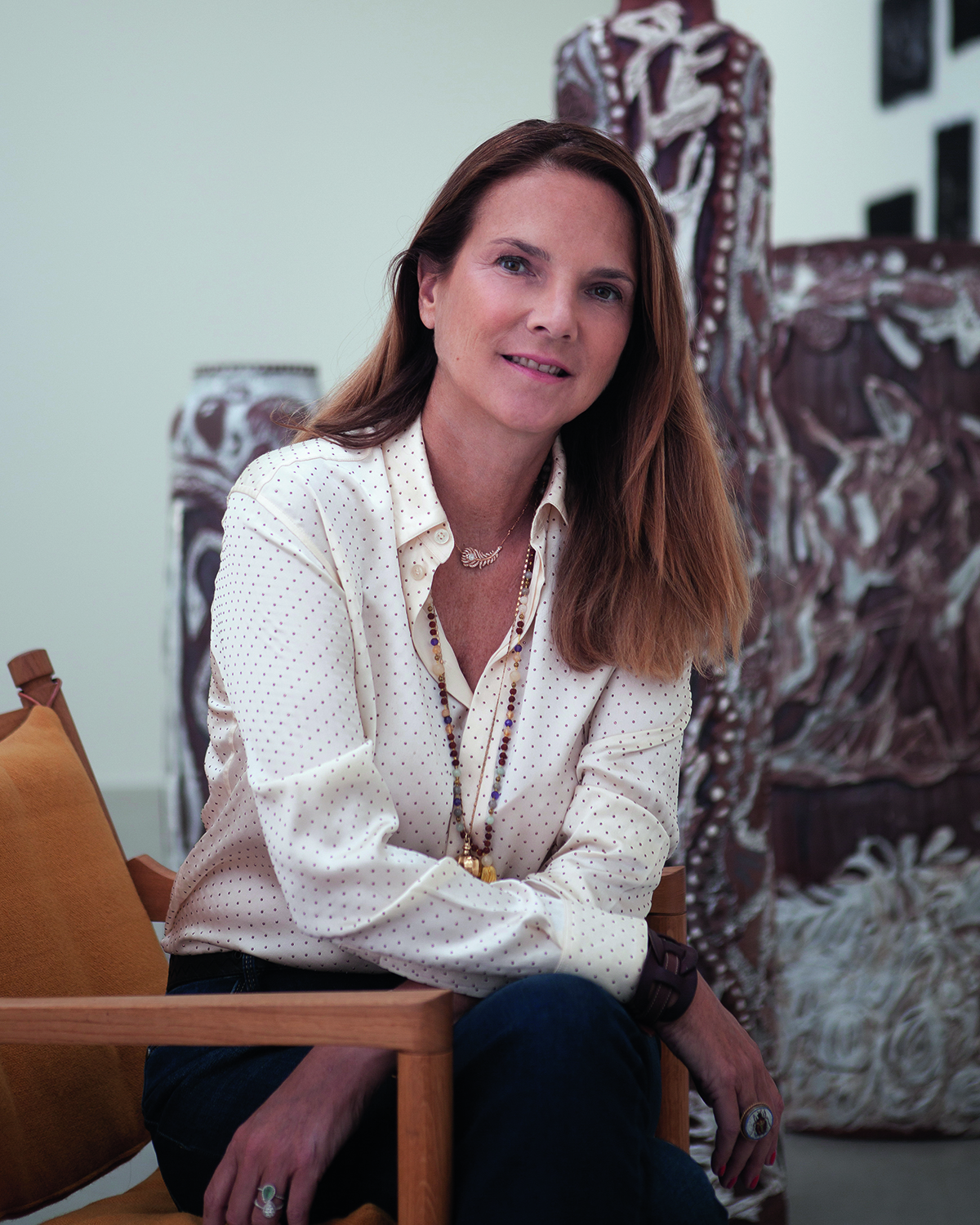
Founder of Fondation Thalie, Nathalie Guiot
The Brussels-based French founder of Fondation Thalie is from one of France’s biggest retail families. Nathalie Guiot speaks to LUX about the need for an all-round vision in facilitating arts and culture to support sustainability and biodiversity – and why you shouldn’t call her a philanthropist. Interview by Anne-Pierre d’Albis-Ganem
LUX: What prompted you to start your foundation?
Nathalie Guiot: The aim was to support contemporary art linked to societal issues with three objectives. To give more visibility to female artists, as I don’t think they are represented enough; to promote dialogues between visual and savoir-faire craft, such as ceramics and textiles – I come from a family of entrepreneurs in retail and textiles; and to be involved in the ecological transition, to invite artists and scientists to create new narratives to call for action. It’s a multi-disciplinary foundation connected to new narratives, contemporary writing, new forms of creative writing, as well as visual arts and ecological transition, and how we can address this urgent topic.
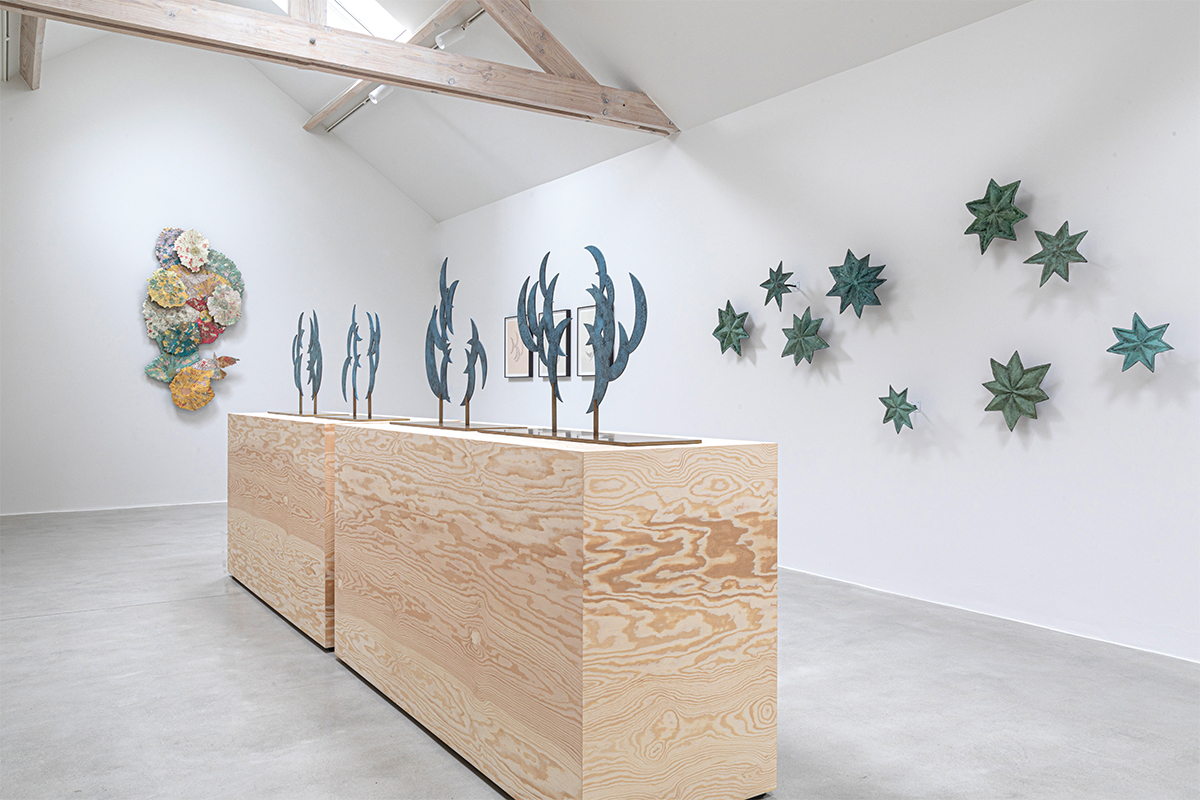
Artworks by Kiki Smith at her solo show at Fondation Thalie
Follow LUX on Instagram: luxthemagazine
LUX: Do you think of yourself as a philanthropist?
NG: I come from a family where we don’t really use that word. I don’t know why – it’s more like we are taking action, but we are not considering it as philanthropy, even if it is actually philanthropy. It’s a way of interacting with contemporary art creation now and how can we help these artists make their projects.
LUX: How can artists address the environmental issues?
NG: I think they have a vision that we don’t have. They have a vision to
project what the future will be. I think about Tomás Saraceno… it’s not only visual art, it is also in cinema, like the amazing film maker Cyril Dion. He just came out with a new movie called Animal talking about the end of biodiversity.
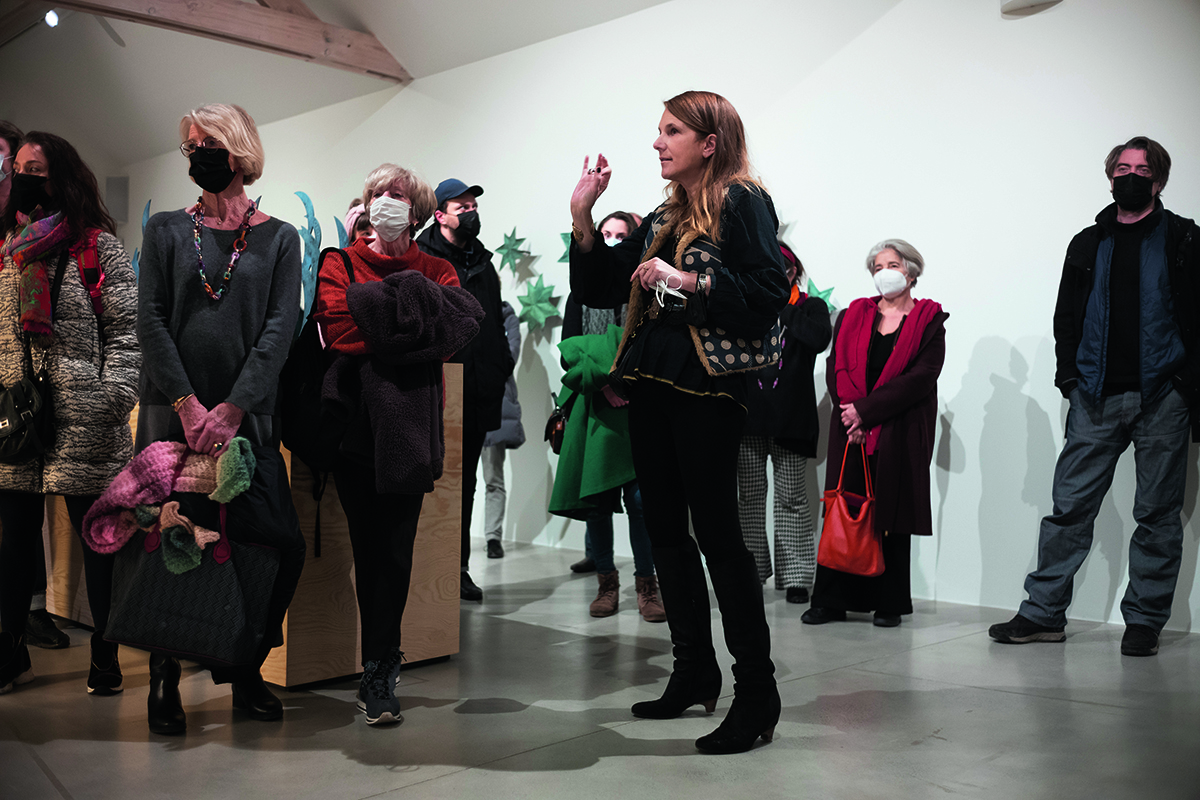
Nathalie Guiot speaking to a group at the Kiki Smith exhbition at Fondation Thalie
LUX: You are involved with artists and biodiversity.
NG: Right now, it’s more about conversations online, and from these conversations we will publish a book of 12. It’s about supporting people who are doing things. We are partners of the festival Action for Biodiversity in Arles at the end of August. I am also involved in the family business, which is Decathlon (the French sports retailer), as a board member of the Transition Committee. We’re working with the École des Arts Décoratifs in Paris, on a three-year research programme for the next generation of designers. It focuses on how to create products without destroying natural resources. Artists and designers will work with mycelium, for example. It will be inaugurated in September.
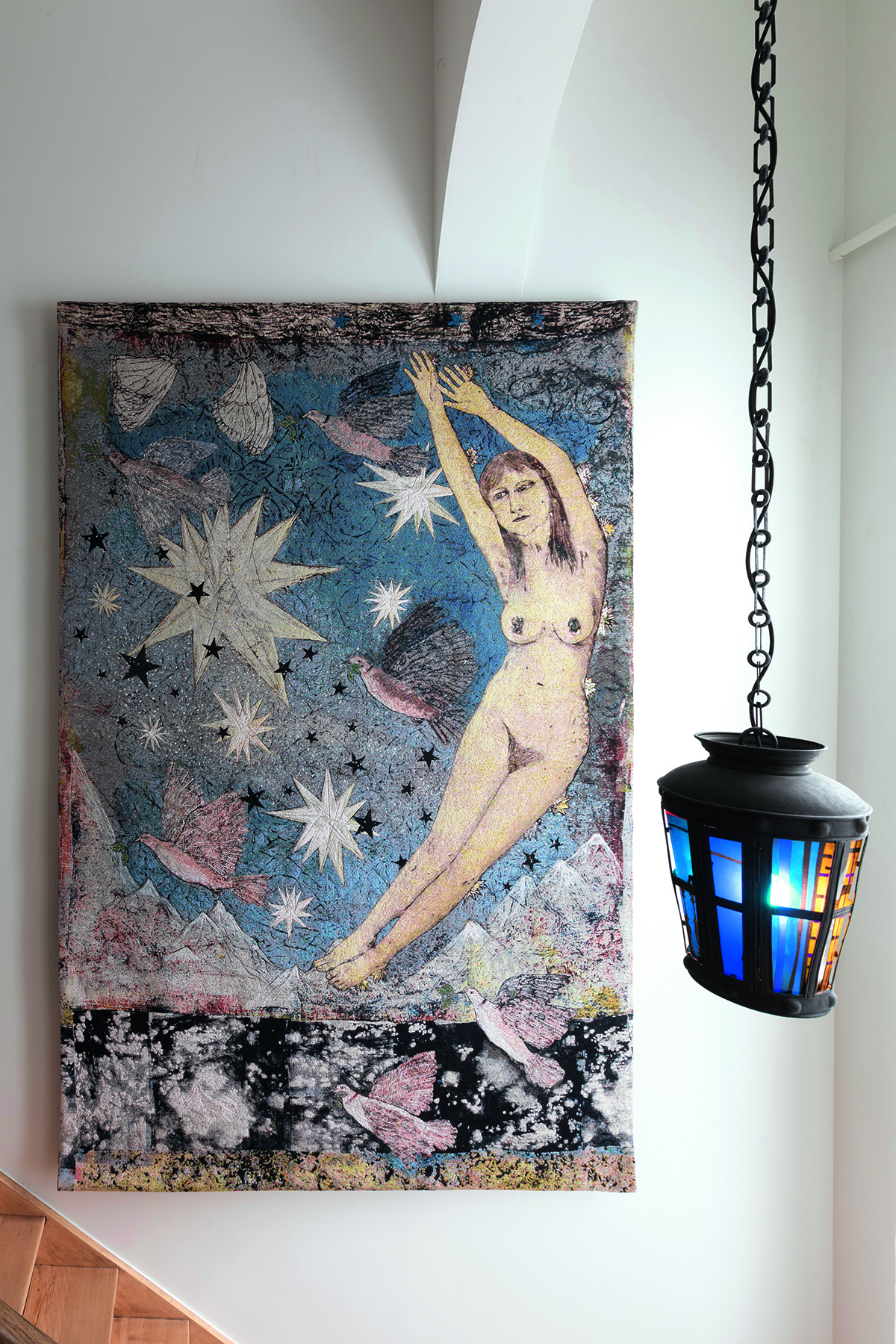
Artwork by Kiki Smith
LUX: Is it a duty or a privilege for those with means to support the arts, given the pressures on public sector funding?
NG: I think it is a privilege to commission artworks, and to enable the creation of a community of patrons and collectors sharing the same passion! More than ever, we need creativity and poetry regarding our dramatic political context of the war in Ukraine. I am grateful to enable the support of artists in this context of a private foundation and to build this art collection over time.
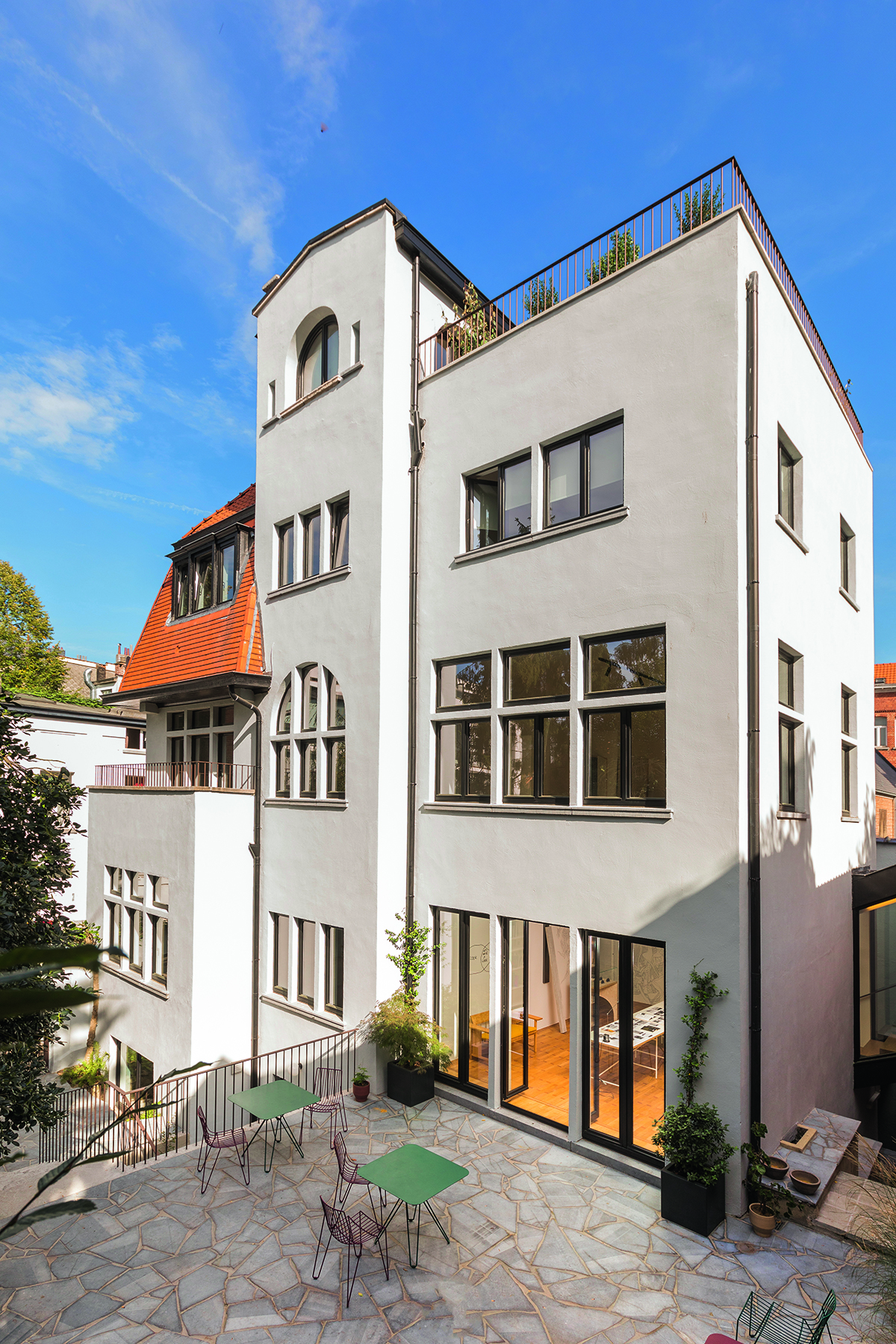
Fondation Thalie
LUX: What changes have you seen around the ecosystem of supporters of the arts/philanthropists, foundations, and museums in the past five to 10 years?
NG: They are more present and active – in particular, in Brussels. When I arrived 18 years ago, there were no galleries, artist-run spaces or contemporary centres. Nowadays, even my baker has an artist-run space!
Read more: Marina Abramović: The Artist As Survivalist
I am kidding, but Kanal Centre Pompidou (museum) has opened in an old car factory downtown, Wiels (contemporary art centre) has a cutting-edge programme of exhibitions, and numerous other galleries and private foundations are there now. Brussels is becoming the place to be!
Find out more: fondationthalie.org
This article appears in the Summer 2022 issue of LUX

